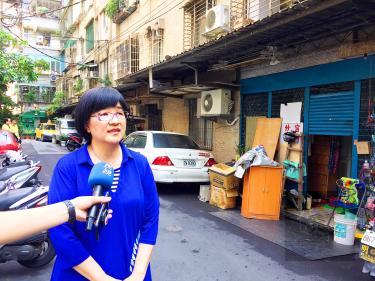
Aboriginal residents of Taipei aged 55 to 64 would be eligible for the government-funded pneumococcal vaccine starting next month, the Taipei Department of Health said yesterday.
Invasive pneumococcal disease, caused by Streptococcus pneumoniae bacterial infection, is more common during winter and early spring and in densely populated cities, the department said, adding that getting vaccinated is the best way to prevent infection.
The city government in October 2017 began providing free 23-valent pneumococcal polysaccharide vaccine to city residents aged 65 to 74, reducing the disease’s incidence rate from 2.41 per 100,000 people in 2016 to 1.41 last year, the department’s Disease Control Division head Ou Chia-ling said.
In 2017, pneumonia ranked third among the 10 leading causes of death nationwide and about 90 percent of victims were people aged 65 or above.
According to the 2015 Health Statistics of Taiwan Indigenous Peoples, pneumonia was the sixth leading cause of death, but studies suggested that pneumonia is an important factor in the difference between the average life expectancy of Aborigines and the general population.
Aborigines’ life expectancy at birth in 2015 averaged 71.86 years, 8.34 years less than the national average.
The department expanded the government-funded vaccination to include Aboriginal residents and it would later this month send notification cards to those who are eligible, Ou said, adding that they can get vaccinated at one of the 208 contracted hospitals and clinics in the city.
They should present the notification card or their Aboriginal identity document along with their national ID card and National Health Insurance card to receive the vaccination, she added.
The department also reported that 9,534 hospital visits for enterovirus infection had been reported in the city as of yesterday, an increase of about 60 percent from the same period last year.
Enterovirus infection is highly contagious and children under five are at higher risk of developing serious complications, it said, urging children, parents and adults who often come into contact with children to maintain good hygiene by frequently washing their hands with soap and water.
Children should be taught to wash their hands before meals, after sneezing or blowing their nose, after using the toilet or seeing a doctor, and before touching infants, the department said.
Adults should change their clothes as soon as they come home before touching or feeding their children, it added.